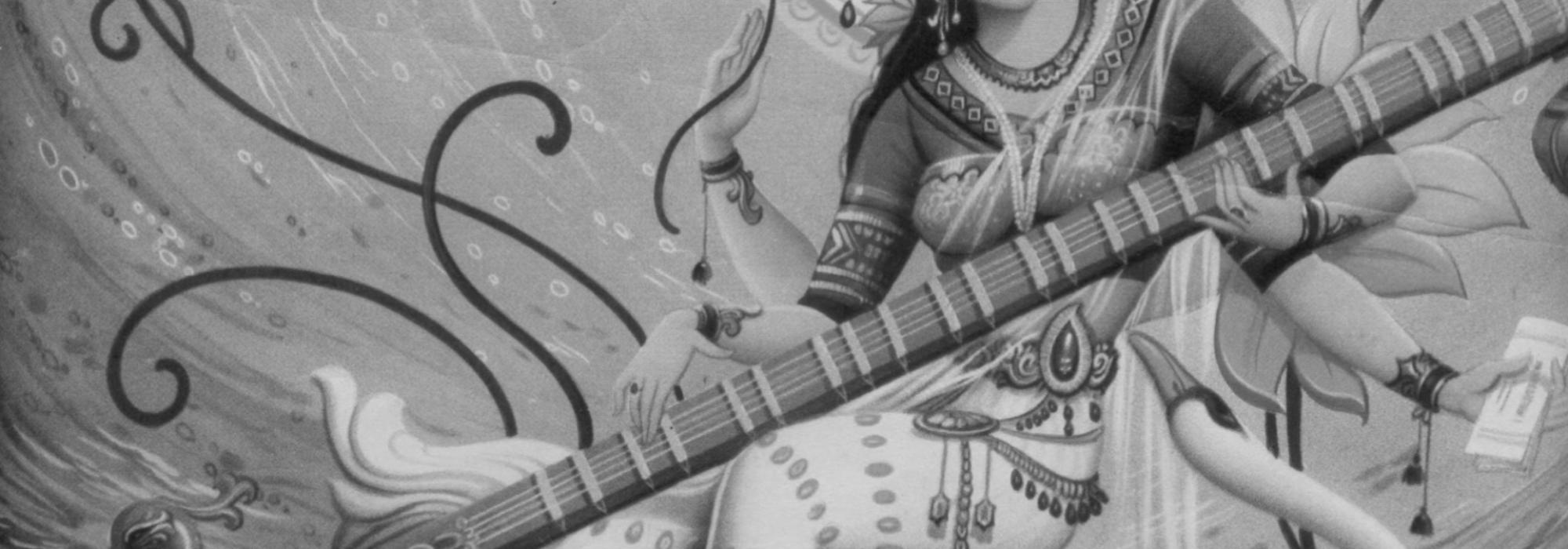नीलोत्पल-दल-श्यामां विज्जिकां मामजानता ।
वृथैव दण्डिना प्रोक्ता सर्वशुक्ला सरस्वती ॥
nilotpala-dala-shyamam vijjikam mam ajanata |
vrthaiva dandina prokta sarvashukla sarasvati ||
Immadi Pulakeshi, the valiant ruler of the Chalukya dynasty, is the pride of all Kannadigas. Under his regime, the kingdom crossed many frontiers and extended its influence till the banks of Narmada. He was hailed as दक्षिणापथपरमेश्वर – the invincible emperor of the Southern land. He even defeated the mighty king Sriharsha.
The protagonist of our story, Vijjika, was the daughter-in-law of Immadi Pulakeshi. Chandraditya was her husband. She was known by many names – Vijaya, Vijayambika, Vijjika, Vijja, Vijjaka, and Vidya. Poetry came naturally to Vijjika. After the death of Kalidasa, good poetry had taken a back seat, as poetry had turned into a medium for scholarly show-off. Vijjika broke this trend and took to वैदर्भी शैलि (simple, unornamented style; literally, “the style of Vidarbha”) to compose her poems. Her lucid and captivating style won her appreciation from the likes of Rajashekhara. Her personality was marked by relentless courage and a confident demeanour. She was also an able administrator.
The context of this story is given by the invocatory verse (चतुर्मुख-मुखाम्भोज-वन-हंस-वधूर्मम । मानसे रमतां नित्यं सर्व-शुक्ला सरस्वती ॥) of काव्यादर्श, written by the famous poet and rhetorician Dandin. He was a master of prose, next only to Banabhatta. The inherent musicality present in his writings has carved him a special niche in the genre of prose. Vijjika was his contemporary. They probably knew each other well; friendly jabs and pokes were not unheard of between them. The invocatory verse referred to above describes Sarasvati as सर्वशुक्ला – the wholly fair one (literally, “all white”). Vijjika came to know about this and wrote a response in the form of a verse:
Not knowing me, Vijjika, the one with the complexion of a blue lily,
Dandin has stupidly described Sarasvati as being wholly fair
According to Sanskrit poetic convention, Knowledge and Speech are said to be white in colour, for they signify purity. Sarasvati being the goddess of speech is also fashioned to be fair-complexioned. Dandin had this in mind when he wrote the verse. But, as evident from the response of Vijjika, this idea was abhorrent to her. This masterpiece of a verse has the undertones ranging from a casual taunt to a caustic rebuttal. The case seems to be one of mistaken identity, and the verse describing it, delivered with wit and panache, suggests that Dandin had no idea of Sarasvati. The import of Vijjika’s response is that she herself was Sarasvati. Her verses are relished even to this day.
Translated from Kannada by Shashi Kiran B. N.
(The original article is from the anthology Kavitegondu Kathe.)















































